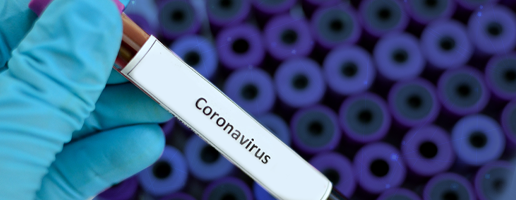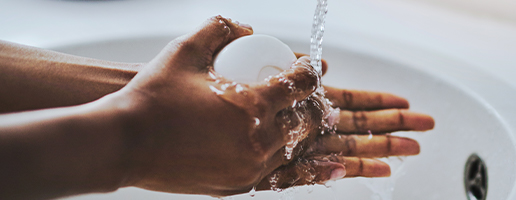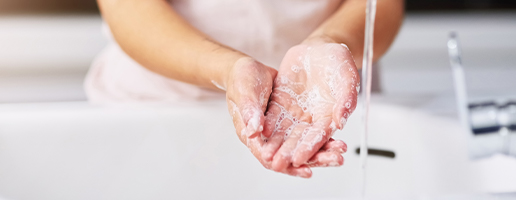Clinical psychologist: Keeping kids and parents mentally healthy through COVID-19

Clinical psychologist Joanna Kleovoulou urges parents to understand how the COVID-19 pandemic could impact their own and their children’s mental health. How should parents respond to their children’s needs in an age appropriate way, and go about protecting their mental health?
Joanna Kleovoulou is the founder of PsychMatters Family and Wellness Centre in Johannesburg. Interviewed for the Discovery COVID-19 podcast series, she says that learning to successfully navigate the ‘new normal’ we are all living through is key to maintaining our mental health in a time of increased stress and challenge.
Listen to the podcast:
Key points from the podcast
A traumatic and stressful life event (such the spread of a serious illness) can overwhelm our coping mechanisms, leaving children and adults feeling out of control and helpless. Continual exposure to the trauma can leave us feeling depleted, exhausted, and acting out in ways that are self-destructive.
If you already have a pre-existing mental health condition (such as anxiety, depression, obsessive-compulsive disorder, posttraumatic stress disorder, social anxiety or panic disorder) the COVID-19 pandemic can trigger or intensify the symptoms.
Children look to their parents for cues on how to relate to their world. A parent’s moods, behaviour and verbal and non-verbal communication all directly affect how children feel and act. In turn, children’s feelings, thoughts and behaviour impact how parents respond to them.
Explain COVID-19 to make a child feel safe and secure
This sounds like a tall order, but here are some ways to do this:
- Choose to talk about a disaster in a way that can lead to discussion about how to help others. This also gives you an opportunity to model compassion. Breathe in, and change your mindset and narrative and focus on the words you use. You aren’t “stuck at home” you are “safe at home”.
- Make the conversation age-appropriate. For example, children younger than eight have difficulty differentiating fantasy from reality and both can be frightening. Limit their exposure to news and events on TV, social media or in print media.
- Get legitimate information from reliable sources. Answer questions honestly, calmly, clearly and keep your answers simple so your child can understand them.
- Explain that many people who have contracted COVID-19 have recovered, and that you and your family are doing what you can to stop the spread. COVID-19 is complex for adults to understand and harder for small children to grasp, so use animations and pictures from credible sources as a place to start.
- Next, when it comes to explaining preventive measures, keep it simple with creative approaches. For example create a jingle for handwashing. Joanna has her five-year-old daughter doing the ‘flossing’ dance while singing, “No touching please, and elbow sneeze; wash your hands for goodness sake, so coronavirus can jump in the lake!”
Free books to help children to cope with COVID-19
- Did you know that the World Health Organization has released a story book to help children and young people to cope with COVID-19? The book is called My hero is you, how kids can fight COVID-19. A fantasy creature called Ario explains how children can protect themselves and their families from the virus and how to manage difficult emotions.
- Did you know that Athol Williams, senior lecturer at the University of Cape Town’s Graduate School of Business has written Oaky and the Virus –one of seven books in a series about Oaky the fictional acorn – which is free to download and distribute to help children?
The ‘7 Cs’ of building resilience in a child
Joanna explains that, “Parents cannot completely cocoon our children from what is happening in the world, but we can create opportunities for open dialogue, sharing, reassurance and nurturing resilience.”
Use the seven Cs:
- Focus on your and your child’s competencies or skills
- Build their confidence by noticing and commenting on how well they are adjusting and coping
- Stay connected with your children by checking in with them and asking about their feelings and thoughts. Allow your children to reach out to, text or video call friends they haven’t physically spent time with so that they feel connected to their social circle.
- Build character. Teach your child about having integrity and doing the right thing for a humanitarian cause. Show compassion to families with a member who has contracted COVID-19 and explain to your children that stigmatising others or discriminating is the wrong response. Give your children household chores and responsibilities and reward them for doing well, as this will make them feel like they belong and give them a sense of cooperation and independence.
- Get your child to see the contribution you are making by staying at home to flatten the curve of COVID-19, or getting involved in charitable causes.
- Teach your child to cope by modelling calm and healthy lifestyle choices and behaviour during stressful times. Your kids will feel better when you feel better.
- Focus your attention on what you can control. Put routines in place and include tasks such as schoolwork, family game time and so on.
How do children of different ages respond to stress?
Children can find it difficult to distinguish a real threat from a perceived one. They are more likely to be overwhelmed by fears that have no basis in reality and small children may respond to an imagined threat in the same way as to a real threat. Which symptoms should parents be on the lookout for, to know when to refer a child for play therapy or an assessment?
In preschool children, watch out for:
- Regression in developmental milestones or a slowdown in the mastery of new skills
- Sleep disturbances or nightmares, a child regressing to thumb-sucking, bed-wetting, loss of bowel control
- Clinging, crying, whining or screaming as feelings of abandonment may be triggered
- Following a parent everywhere
- Refusing to let a parent go out for errands
- Refusing to be left alone
- Being fearful of darkness or animals
- Developing a stutter or other speech problems
- Trembling or suddenly being unable to move
- Re-enacting parts of the devastation they have experienced in their play
Older children understand that life changes can be permanent. They may become preoccupied with the details of the disaster or exhibit fears that seem unrelated to it. Their stress can manifest as:
- Being withdrawn
- Expressing irrational fears
- Being irritable or having angry outbursts
- Being overly competitive with siblings
- Isolating themselves
- Refusing to apply themselves to online school or homework
- Being disoriented or easily confused
- Exhibiting poor concentration and school performance
- Losing interest in activities they used to enjoy
- Expressing physical complaints such as headaches, stomach aches or dizziness
- Being depressed, anxious, or emotionally numb
- Blaming themselves and feeling guilty about how the crisis has affected their family
- Feeling bedtime anxiety with poor sleep, frequent waking and chronic worrying
- Older children might also feel pervasive sadness, especially if they feel abandoned or fear the loss of both parents or siblings to COVID-19
- Being afraid of the world ending, or watching their parents die, with this ‘catastrophising’ based on fears, not facts.
- Becoming overactive or acting irresponsibly to avoid thinking about stressful issues
- Being disrespectful, rude or hateful towards other.
For teenagers, feelings of isolation, loneliness and separation anxiety increase with the loss of matric finals exams, or of hopes of moving to university:
- Teenagers who tend to achieve academically, in sports or extracurricular activities may feel a loss of identity when these activities are taken from them.
- Teenagers may also feel insecurity if parents are not available to them because their parents are caught up in their own stress relating to finances, career or relationships.
- Teens may present with difficulty concentrating, physical complaints like chronic headaches, backaches and stomach aches. Their emotions can trigger real physical pain.
“Courageous, resilient parenting will create courageous, resilient children”
Joanna reminds us that, “The COVID-19 pandemic has not limited our access to doctors, psychologists, social workers, to your loved ones or to your church and community. Also, we grow and get stronger through challenges.”
All medical information found on this website including content, graphics and images, is for educational and informational objectives only. Discovery Health publishes this content to help to protect and empower all South Africans by promoting a better understanding of COVID-19.
Find a healthcare professional near you
Find a doctor or hospital near you online or by using the Discovery app.
Related articles

Outbreak of the 2019 novel coronavirus
The 2019 novel coronavirus (2019-nCoV) has caused an outbreak of fatal respiratory illness first detected in Wuhan, China. This is a completely new strain with no vaccines available. The best way to prevent infection is to avoid being exposed to this virus.

Understand the Novel Coronavirus (COVID-19) and prevent infection
No country is immune to the spread of the Novel Coronavirus - officially named COVID-19 by the World Health Organization (WHO). The outbreak has reached pandemic proportions and been declared a global public health emergency.

Novel Coronavirus - wash your hands of the threat
As toddlers, we learnt to wash our hands. But, did we ever master the skill to the extent that is needed to wash pathogens off our hands, and save lives? Multiple studies show people don't wash their hands at the right times, in the right way or for the right amount of time. We contaminate the things and people we touch with the germs we carry on our hands.